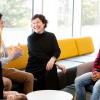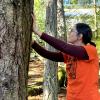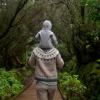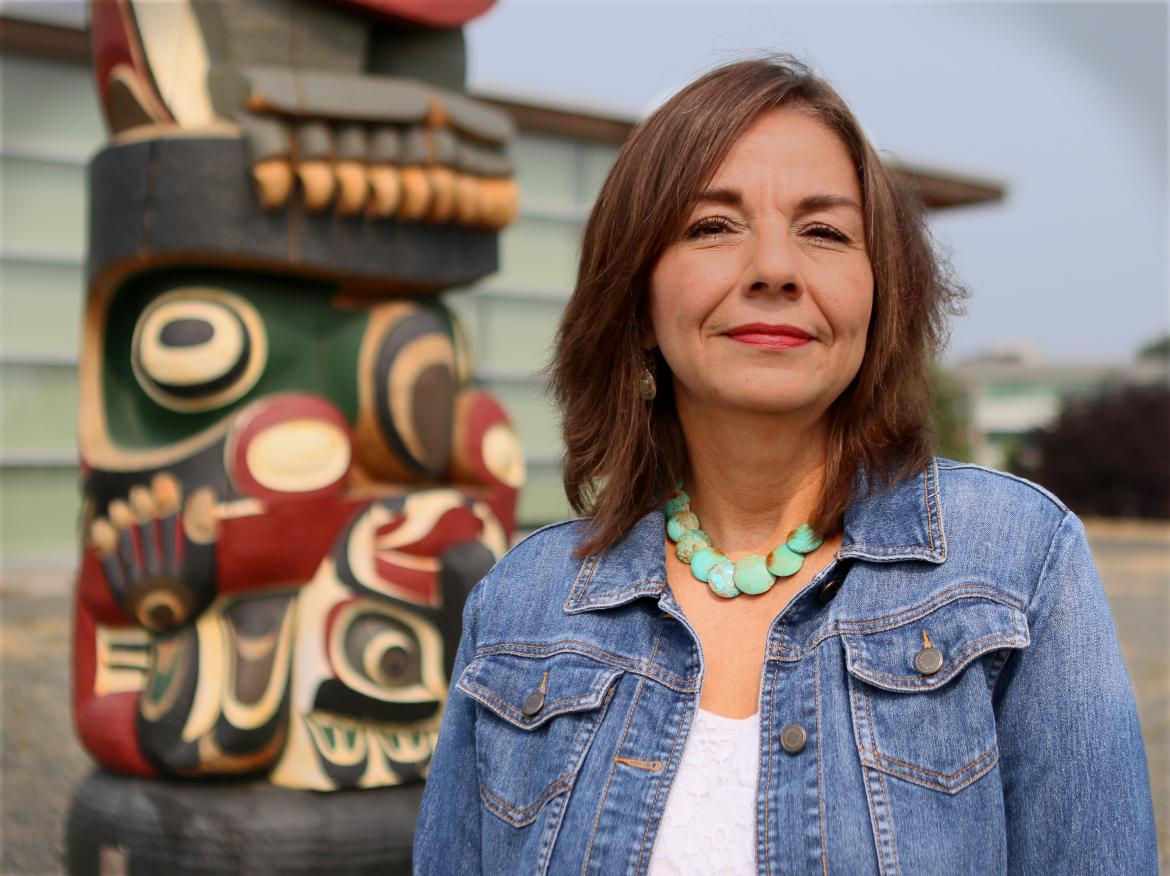
Dr. Drywater-Whitekiller is the Fulbright Canada Jarislowsky Foundation Visiting Research Chair in Aboriginal Studies
August 16, 2018 - 9:00am
Vancouver Island University (VIU) welcomes Dr. Virginia Drywater-Whitekiller, the Fulbright Canada Jarislowsky Foundation Visiting Research Chair in Aboriginal Studiesfor 2018.
“I feel very humbled,” says Drywater-Whitekiller. “It seems surreal that I have been honoured to contribute in this way.”
“I am excited to welcome Virgina Drywater-Whitekiller to Vancouver Island University as the Fulbright Canada Jarislowsky Foundation Visiting Research Chair in Aboriginal Studies,” says Dr. Carol Stuart, VIU Interim Provost and Vice-President Academic. “Her approach to research and her focus fits well with VIU’s commitment to supporting Indigenous students and communities. Access and success in educational endeavors is critical for progress toward reconciliation and Dr. Drywater-Whitekiller’s research will help us understand success from a student perspective.”
As a single-mother, Drywater-Whitekiller pursued a post-secondary education to build a better life for her child and herself. She received her doctoraldegree in Higher Education Administration at Oklahoma State University in 2004, after becoming the first-ever university graduate in her immediate family.
“My Cherokee grandparents taught me with having a higher education I have a responsibility to give to Indigenous peoples,” she says. Drywater-Whitekiller contributes to supporting Indigenous peoples through education.
Drywater-Whitekiller is a professor at the Northeastern State University (NSU) of Oklahoma, an institute with the highest retention rate in the United States for Aboriginal peoples and was originally founded to support Indigenous learners. Twenty-five per cent of students at NSU self-identify as Indigenous.
“First Peoples in Canada and the United States share similar situations; the majority of us are in poverty, live in poor health, and have intense struggles,” says Drywater-Whitekiller. “Having a higher education helps address those problems and empowers tribes and future generations.”
She has over 20 years’ experience developing and teaching undergraduate and graduate level social work and indigenous studies courses.
Drywater-Whitekiller carries on the legacy of Chief Wilma Mankiller, the first elected female chief of Cherokee Nation, by continuing to teach a Native American leadership course they developed together before Mankiller passed away. “I hold this project very dear to my heart,” she says. “I promised her I would continue this meaningful work, and it’s gratifying to support Aboriginalyouth to develop strong leadership skills.”
Drywater-Whitekiller has developed a fifth year medical school program to encourage more Indigenous learners to pursue medical professions. She has served as the principle investigator for several federal funding initiatives, including NSU’s Child Welfare Workforce Traineeship for the U.S. Children’s Bureau.
Drywater-Whitekiller has contributed extensively to social work practice with Aboriginal populations in aspects of health care, education, juvenile offenders, and child welfare. “This is a way of life for my husband and I. It is our desire to go out in the communities and help in any way that we can,” she says. During her stay in Nanaimo, Drywater-Whitekiller hopes to be invited to First Nations for the opportunity to visit and learn from those communities.
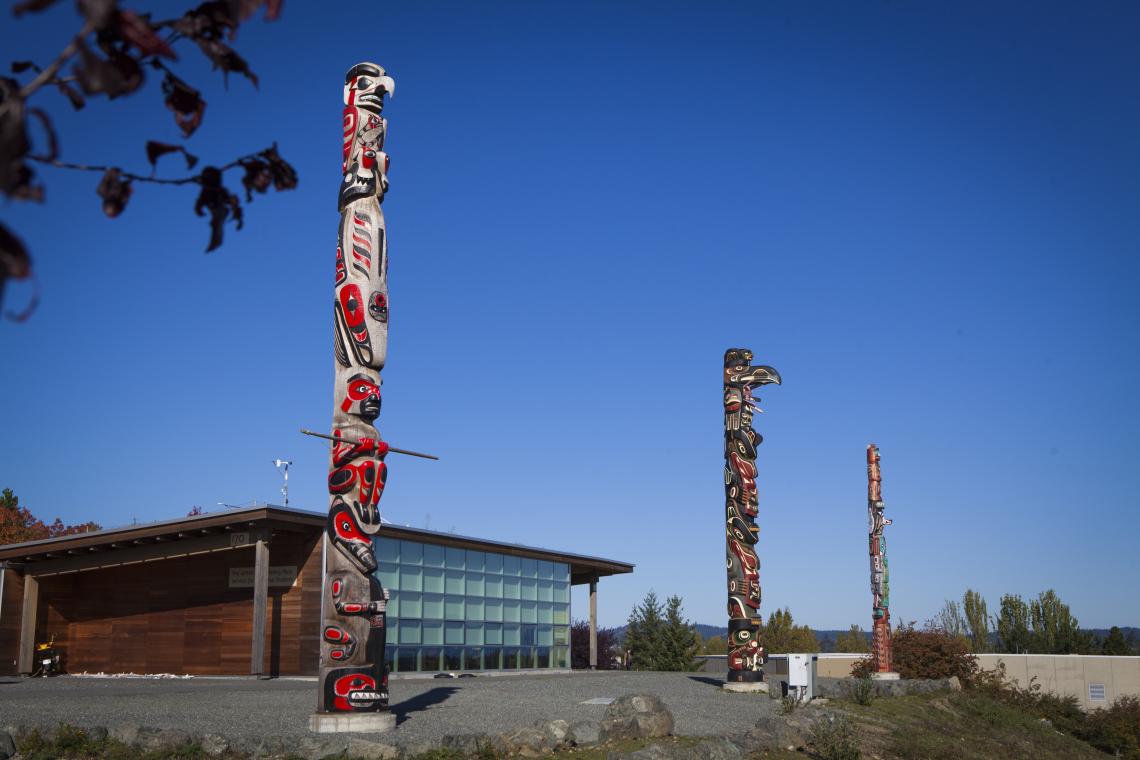
Drywater-Whitekiller’s Fulbright proposed research “Indigenous Cultural Resilience: Supporting Higher Pathways” will explore cultural factors and coping mechanisms of Canada’s Indigenous peoples in college retention. The strength-based research focuses on Indigenous concepts that assist Indigenous peoples in navigating challenging life tasks.
“I hope my work will be informed by the Elders-in-Residence and they will become co-researchers with me,” she says. “Once my time here is over, my wish is the research will continue to be relevant and applied.”
Drywater-Whitekiller will be at VIU conducting her research from August 7thto December 19th, 2018.
-30-
MEDIA CONTACT:
Rae-Anne LaPlante, Communications Officer, Vancouver Island University
P: 250.740.6673 | E: Communications@viu.ca| T: @VIUNews
Tags: Aboriginal | Indigenous | Research Chair | Teaching and Learning

